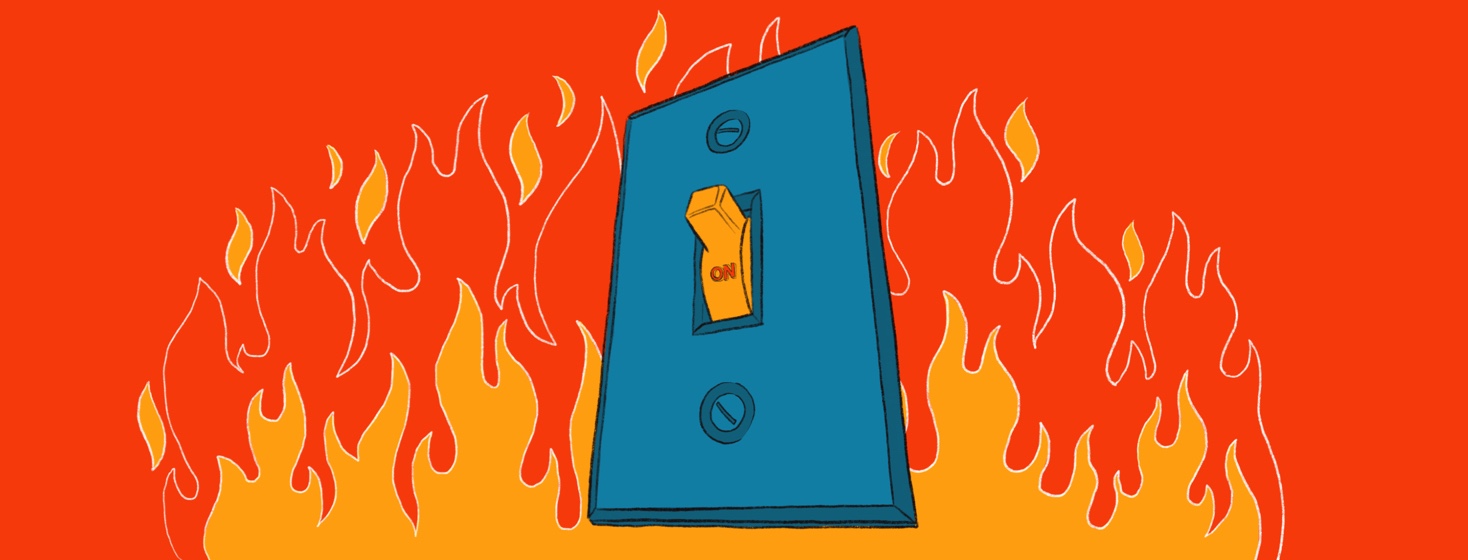Is It a COPD Flare or Do I Have an Infection?
COPD is a chronic disease, for which there is no cure. The course of the illness often lasts for years, perhaps even decades. So, it's not unusual for the person with COPD to experience ups and downs during the course of the disease.
From time to time, your COPD symptoms may increase or your breathing may worsen, even if you're still in one of the mild to moderate stages of the disease. This is called a flare-up, or exacerbation. These flare-ups can increase in frequency and intensity as you enter one of the later stages of COPD. Some flares can occur because you came into contact with a trigger or irritant. For example, smoke, poor air quality or chemical fumes are possible triggers that can further irritate your already damaged airways.
Infection is another serious cause of COPD exacerbations. In some cases, a trigger-induced flare-up weakens the airways to the point where infection becomes a greater risk and worsens things further.
COPD flares (or flare-ups) should be taken seriously as they can cause your respiratory health to quickly spiral downward. In some cases, you may never know exactly what triggered a flare. What's most important though is recognizing when your COPD is flaring up and knowing what to do about it.
Symptoms of a COPD Flare-Up
The initial symptoms of a COPD exacerbation are the symptoms of COPD, only worse:
- Shortness of breath
- Chronic cough
- Wheezing
- Chest tightness
- Fatigue or lack of energy
- Cyanosis, which is blue fingertips, nails or blueness around the mouth
If these symptoms lessen or go away with rest, then there may be no cause of concern. But, when rest does not relieve them, or they continually get worse, it's time to call the doctor. You may need an adjustment in your treatment plan. Or, you may need to be further assessed by health care professionals.
Of greater concern are symptoms that indicate a respiratory infection is in play.
Symptoms of a respiratory infection
The most common cause of COPD exacerbations are infections, both bacterial and viral. This includes the common cold, pneumonia and influenza. Infections in people with COPD need to be treated immediately. Here are some common symptoms, in addition to those listed in the previous section.
- Increase in mucus with coughing or a change in the color to bloody, yellow or green; may also become thicker and have a foul odor
- Fever, 100.5 degrees Fahrenheit or higher, or chills/shaking
- Chest pain in one area of the chest when breathing deeply
- Severe breathlessness
- Excessive sleepiness
- Mental confusion
Actions to take if you suspect a COPD flare
First off, call your doctor at the earliest signs. It is better to be safe, rather than sorry. If your doctor is not available and you are not getting better, don't hesitate to visit your closest urgent care center or emergency department of a hospital. Quick treatment of a flare can prevent more serious complications or even death.
To treat a flare-up, you may need additional or a different type of medication. Oxygen may be ordered or the flow rate increased, if you already use it. In some cases, people having a COPD exacerbation, especially one caused by infection, may need to use CPAP therapy. CPAP stands for Continuous Positive Airway Pressure, and this is a device that helps you breathe more effectively.
In some cases, you may need to stay in intensive care and receive mechanical ventilation.
Prevent exacerbations if you can
You can't always prevent flare-ups, but there are things you can do to lessen your risk for having one.
- See your doctor regularly, even if you're feeling well
- Take your medication as prescribed
- If you have supplemental oxygen, use it as prescribed
- Follow healthy lifestyle habits, including health eating, staying active and managing your stress
- Quit smoking, if you still smoke
- Get plenty of sleep
To avoid infection:
- Stay away from people who you know are sick and away from crowds during cold & flu season
- Wash your hands often for 20 seconds with warm water and soap, especially when in public places
- Get a yearly flu shot and periodic pneumonia & pertussis shots (usually every few years)
In summary
It is possible to stay well and stable much of the time, even when you have COPD, no matter what stage you may be at. Be aware of and watch for the early warning signs of a flare-up. It can be hard to notice them because the changes can be subtle. And you may not be sure if it's a simple flare or an infection. But the important thing is not to ignore anything you do notice. Take quick action and work with your healthcare team.
Share your tips with a community member going through her first flare.
Community Poll
Do you have an exercise routine?

Join the conversation